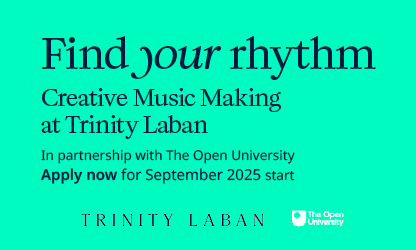Research and evidence: the lifeblood of advocacy
One of the jobs that you as members of Making Music entrust us with is to speak on your behalf to those that shape the environment in which you operate: national and local government(s), regulatory bodies, politicians, funders, and more.
But in order to do so we need to be confident that we know what we’re talking about – and so do our interlocutors. You will have noticed on the news, I’m sure, that it’s reports with precise numbers and percentages that get ministers’, and the media’s, attention.
At Making Music we think the evidence base for leisure-time musical activity is not large or robust enough. We have figures for members, provided through the Treasurers’ survey, plus statistics from our membership database. But these alone do not always provide all the information we need.
So we’ve been working on improving the evidence available. Firstly, we are therefore always immensely grateful if you complete our surveys. We apologise for the time they take, but assure you that your responses are put to good use.
Beyond the Making Music membership, we are frustrated by the lack of figures on the actual size of the leisure-time music sector. The last authoritative study was in 2008. Since then, we think, but cannot prove, that much has changed.
This is the reason for currently working with Voices Now on mapping all singing groups in the UK, however small or under the radar. If you haven’t added your group to their survey yet, please do and encourage everyone you know to do the same. Reaching absolutely all groups, we believe, would provide us with fantastic figures to lobby for more support for singing.
(And yes: we know we need to find out how many instrumental groups and promoters there are, too!)
Apart from the sheer numbers, we’d also like to know how to measure and explain the impact of music groups: financial, social, community cohesion, place-making. We reckon this would really help articulate the value of music groups to local authorities in particular. An application to Arts Council England’s research fund this year was not successful, but we are now working with the University of Sheffield on a small pilot which may help achieve future funding for a larger study. The pilot also involves a survey, which is live now.
There is, of course, existing research on the impact of music participation on individuals. In terms of health & well-being or young people’s development, for instance, there is now a good library of studies. There are also useful wider research projects, such as the 2016 Understanding the value of arts & culture report or the Warwick Commission's final report of 2015. As well as drawing on these ourselves, we assemble any evidence we find into our online resource for you to use for your own advocacy or funding applications.
But we keep coming back to you, our invaluable mine of information on all aspects of music groups, to provide us with all the right information we need to make your voice heard. So thank you for responding so readily to our frequent requests, and do please carry on helping us… to help you.



